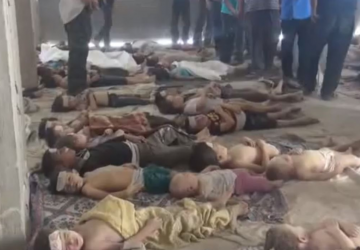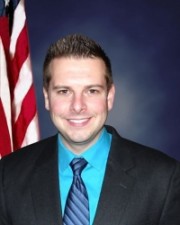Fecteau: A Responsibility to Protect in Syria
Monday, April 10, 2017
Matt Fecteau, GoLocalPDX Guest MINDSETTER™
 The Trump administration ordered targeted military strikes on a Syrian airbase after the recent chemical gas attacks perpetrated by the government of President Bashar al-Assad on his own people. Some may question the need for these strikes, but the reality is that humanitarian intervention is something that – while legally debatable — is a worthy goal. The United States has dithered while Syria burns for far too long, and at the least now, the Syrian government has faced some consequence for its use of chemical gas.
The Trump administration ordered targeted military strikes on a Syrian airbase after the recent chemical gas attacks perpetrated by the government of President Bashar al-Assad on his own people. Some may question the need for these strikes, but the reality is that humanitarian intervention is something that – while legally debatable — is a worthy goal. The United States has dithered while Syria burns for far too long, and at the least now, the Syrian government has faced some consequence for its use of chemical gas.
The United States cannot prevent all heinous acts, but that doesn’t mean it should be a bystander to conflicts so egregious in nature, they threaten U.S. national security interests. The goals of the targeted military strikes are limited but may be expanded to prevent further bloodshed in Syria. The war in Syrian has killed nearly 500,000 people (according to some estimates), and displaced millions – enough is enough.
The Assad-led Syrian government forfeited its right to legitimacy years ago. While the so-called Islamic State is a contributing factor, the chaos in Syria is largely driven by a Syrian government that flagrantly violates international norms to maintain power, including barrel bombing cities, raping and torturing children, the use of child soldiers, and the now-infamous use of chemical gas.
With this latest attack, videos have emerged on social media showing the tragic consequences of this chemical strike; children in immense pain, and panting for air can be visibly be seen. These chemical assaults may have been war crimes, and after a thorough investigation, the International Criminal Court should weigh charges against the culprits within the Syrian government. Military intervention should be last resort but warranted in this case because the Syrian government has proven that it is willing to use the most horrific weapons of mass destruction to suppress its people.
These latest military strikes are in line with international goals. At the 2005 World Summit, all member U.N. nation-states – including Syria — endorsed the idea of responsibility to protect all people, regardless of ethnicity or nationality, from “genocide, war crimes, ethnic cleansing and crimes against humanity.” This latest chemical attack falls into this responsibility to protect paradigm and triggered a justified American military response though not specifically sanctioned by the U.N. Security Council or authorized by Congress.
Regardless, the United States needed to send a clear, strong message that the Syrian government has gone too far. Without such an intervention, however, the loss of life could be even more catastrophic. The Syrian government would potentially continue to use chemical gas, killing much more; it now knows there are consequences for its actions.
In the absence of action, the situation becomes far graver. For example, the Rwandan Genocide during President Bill Clinton’s tenure is a clear example of the dire consequences in the face of doing nothing. 800,000 people were killed in the remote African country, all while the United States and the global community wavered. Now, imagine chemical weapons were involved such as with Syria; a dire concern indeed.
President Clinton’s decision (or indecision) remains a black mark on otherwise stellar international record. Clinton even admits he could have saved 300,000 people if the United States intervened. In his defense, this dithering came after the regrettable incident in Mogadishu known as Blackhawk Down, making intervention in faraway countries that much harder to justify in the wake of American lives lost.
Clinton learned from his failure in Rwanda. He ordered the United States to intervene into Yugoslavia. Clinton prevented the murderous government of strongman Slobodan Milošević from continually butchering the ethnic Bosniaks in 1995 and then the Albanians in 1999— both without formal U.N. or Congressional approval.
Mr. Donald Trump pursued the correct, yet overdue course of action to hold the Syrian regime accountable for these monstrous chemical attacks. In 2005, the international community determined it had a responsibility to protect everyone, including troops and civilians from the kind of attacks that are occurred in Syria. The United States doesn’t need to police the world, but there are instances that are so brutal they require a military response. The chemical weapon attacks in Syria were one of those times.
 Matt Fecteau ([email protected]) is a former White House national security intern and Iraq War veteran. Follow him on Twitter @MatthewFecteau
Matt Fecteau ([email protected]) is a former White House national security intern and Iraq War veteran. Follow him on Twitter @MatthewFecteau

